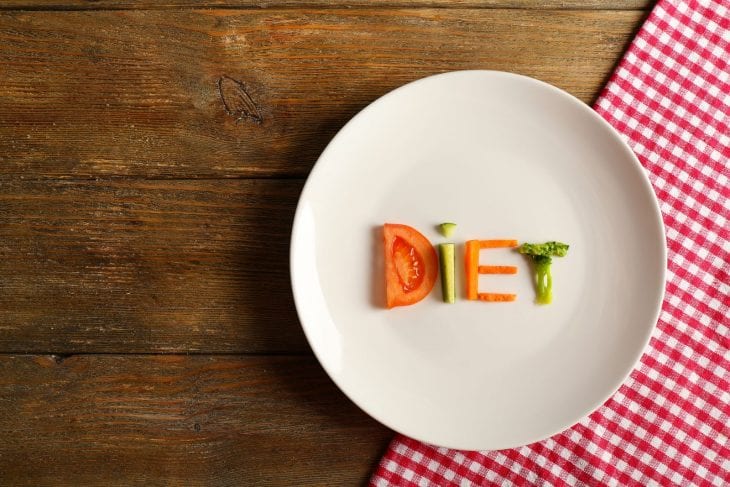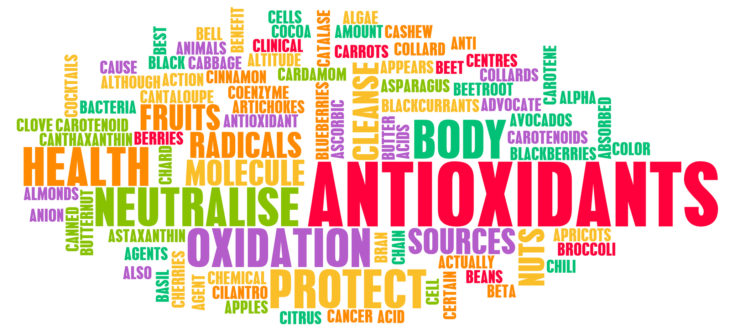With the advent of social media and the subsequent surge in its popularity, it is almost impossible to not be inundated with the barrage of posts related to food: from food-bloggers trying every food joint to fitness influencers posting about ‘good’ and ‘bad’ food, to travel-bloggers that passionately share the new cuisines they have encountered in their travels. However, in the wake of this dichotomy that stems from either wolfing down ‘Instagram worthy’ junk food of epic proportions or nibbling on a simple salad, it is easy to overlook the fundamental purpose of food: to nourish the body and supply it with energy that keeps it going. While the foods mentioned above are often misused by people who develop unhealthy eating habits in the quest for the ‘perfect’ body, the reality is that feeding the temple that is your body with sufficient amounts of nutritious food is imperative to maintaining your physical and mental health.

Source: health.harvard.edu
Contents
Get in your daily protein
Protein is an essential component of every cell in the body. It is an essential constituent of muscles, bones, cartilage, skin, blood and hair amongst others. It plays a vital role in the function and regulation of the body’s tissue and organs and is, therefore, an integral part of any balanced diet. An excellent way to start your day with a protein-packed punch is with a hearty breakfast of eggs and bacon, or with a protein-packed smoothie. Including a serving of a protein (chicken breast is a very popular option) for lunch and dinner will help meet protein requirements for most people. Vegans can opt for alternatives like tofu, quinoa or other plant-based proteins.

Source: Unsplash
Fat doesn’t make you fat
As counter-intuitive as it sounds, eating fat will not necessarily make you gain weight or feel lethargic. The reason we make this association is most likely that we fail to differentiate between dietary fat and subcutaneous fat (the fluff under our skin). A moderate amount of dietary fat is essential for a balanced diet as it is the source of essential fatty acids which body cannot make on its own. A good guideline to keep in mind is to stick to unsaturated fats (the healthy sort) and avoid excessive amounts of saturated fats (the ones found in all the yummy food including fried food, biscuits, pastries, cheese and ice cream). Focus on good sources like eggs, milk and seafood, which are good sources of the Omega-3 fatty acid essential for heart function and linked to improved mood, memory and energy. Other sources of fat include avocados, nuts and nut butter, and seeds like flax and chia seeds. Try to limit your fat intake to around 30% of your overall calories.

Source: American Heart Association
Carbohydrates are important
Carbs, or carbohydrates, come in two forms: simple and complex. Simple carbs are contained in fruits, milk, and milk products. They are also found in processed and refined sugars such as candy, table sugar, syrups, and soft drinks. Complex carbohydrates are found in foods such as peas, beans, whole grains, and vegetables. The body breaks both of these forms down into glucose to be used as energy, however that is where the similarities end. Complex carbs have more fibre, which slows down their digestion and thereby provides a slow, steady release of energy over extended periods. The Glycemic Index (GI index), which is a measure of how much insulin is produced as a response to the food you are eating, is also typically lower for complex carbs than for their simpler counterparts. A smaller insulin spike means more stable blood sugar levels, which keeps you satiated for longer and prevents the ‘crash’, that people experience after a ‘sugar-high’.
While simple carbs may have their place in a balanced diet as well, like as a pre-workout snack for an energy boost or for carb-loading before an intense sport such as a marathon or a football game, the average Joe should definitely try to keep a check on the intake of processed carbs and refined sugar as these tend to creep in our diet without us even realizing it. Stick to complex carbs for the most part, and allow yourself to indulge in other carb sources as a treat occasionally.
In this day and age, most fitness influencers and trainers tend to tout the ‘carbs are the enemy’ outlook, which resulted in the rise in various diets which largely exclude carbs, such as Adkins, Paleo and Keto, to name a few. While all of these diets can, and most certainly will, work for anyone with the will-power to see them through, they are often not sustainable over the long run and dieters often end up gaining back much of their weight.

Source: Power Health
Anti-oxidants are your friends
Antioxidants cleanse your system from harmful free radicals that cause fatigue, accelerate ageing and damage vital cells and their processes in our body. Antioxidants can be found in a wide variety of fruits and vegetables, and it is advisable to stick to these ‘whole food’ sources for antioxidants rather than resort to pills and medication. Opt for colourful fruits like berries and dark leafy vegetables like broccoli and spinach to get in your daily dose of antioxidants and stay energised throughout the day.
Balance is key
It is pertinent to note here that, as with everything in life, balance is the cornerstone for maintaining a healthy lifestyle revolving around proper nutrition. Aim for a healthy mix of protein, carbs and fats in your diet that meets your Recommended Daily Allowance (RDA) of nutrients, and tries to wean yourself off any harmful habits that can make you feel sluggish, binge eating or starving yourself. Reduce smoking and alcohol, and increase exercise. Some general considerations to ensure that you stay invigorated throughout your day are:
- Stay hydrated.
- Don’t skip the critical energy boost you get from breakfast.
- Healthy smoothies are a perfect alternative to junk foods when you’re in a pinch.
- Track your daily intake using apps like MyFitnessPal to make sure you aren’t under or overeating.
- Eat plenty of fresh fruits and vegetables, which contain essential vitamins and minerals.
- If there are some special dietary requirements or restrictions, be sure to consult with a health care professional at Click Pharmacy to guide you along the way.

Source: Diet Doctor
Maintaining a well-balanced diet should be a life-long habit. Once you have inculcated this into your routine and witnessed firsthand how it rejuvenates and strengthens you, you will never look back from your healthier, more refreshing lifestyle.
